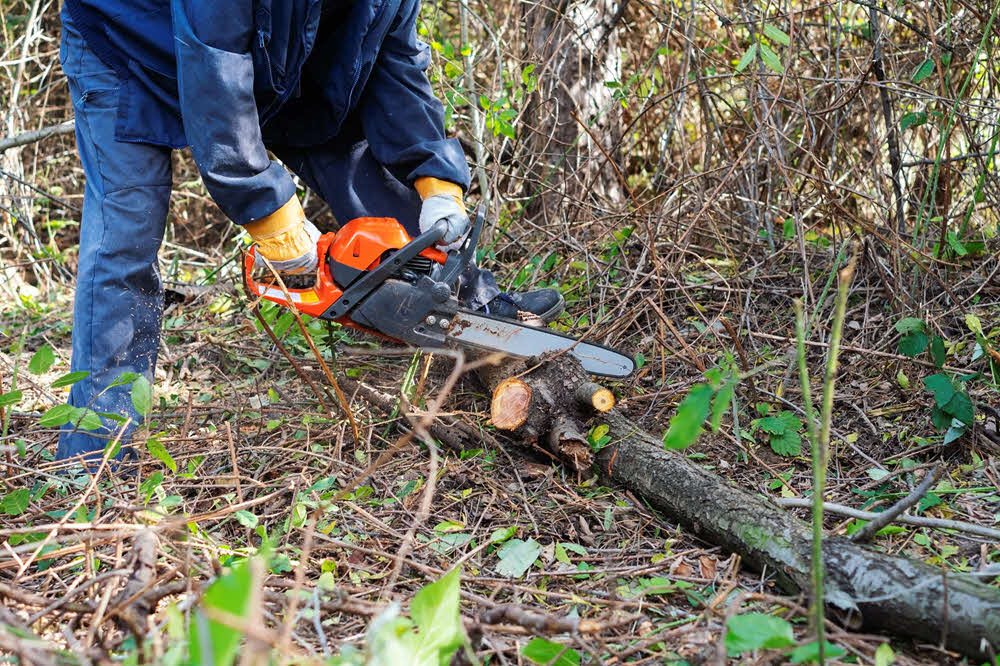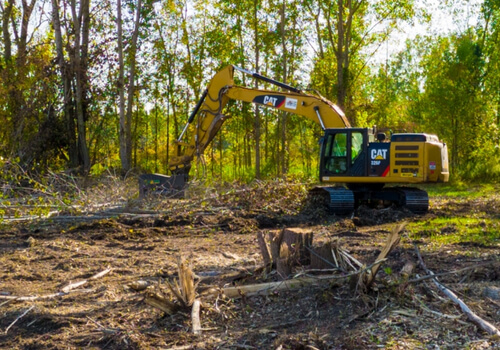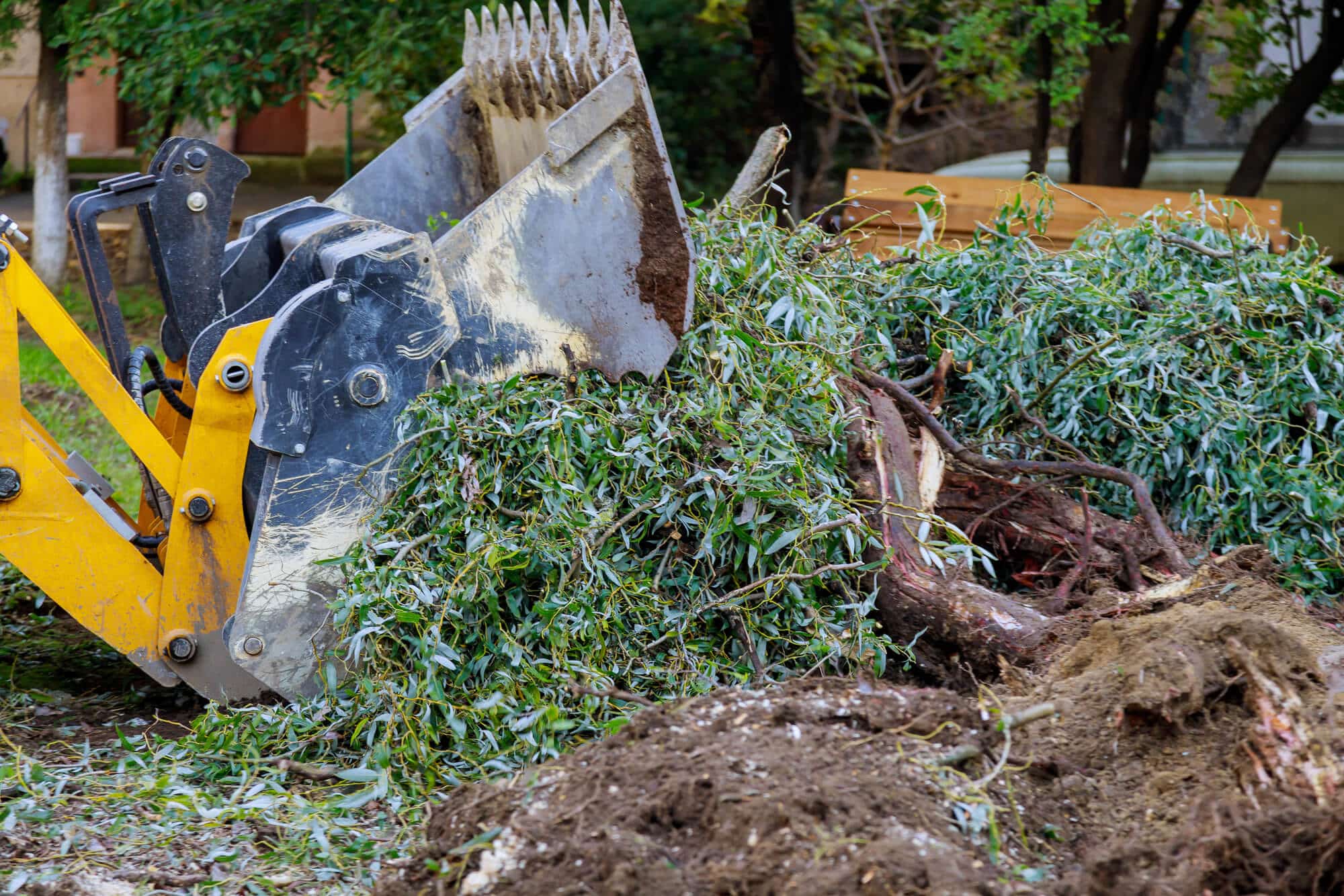Land Clearing Servicesin Rochester Hills MI
Land Clearing Expertise to Ensure a Smooth Construction Process
We Are Locally Owned & Operated For Over 37 Years
Contact Us Today!
We Serve Businesses In And Around The Following Cities:
About Land Clearing Services
Introduction
Land clearing services might not always resonate as a high-priority requirement for many property owners in Rochester Hills. However, this perspective can change quickly when the functional and aesthetic implications of utilizing these professional services are fully understood. Whether you are a property manager, business owner, or real estate developer looking to clear land for new construction or to improve a commercial landscape, the professional services offered in our beautiful city can play a crucial role.
The purpose of this guide is to offer invaluable insights into the process of land clearing, articulate its benefits, and display its real-world applications. Weaving a detailed narrative, this guide will provide an eye-opening perspective that will alter your thinking about land clearing services and showcase why businesses like D&J Contracting are indispensable.
Process of Land Clearing
The process of land clearing encapsulates a multitude of tasks such as grading and land clearing, clearing off land, land clearing, and leveling, all of which often require skid steer land clearing techniques. Land clearing professionals embark on a systematic approach that involves the efficient removal of trees and vegetation, and sometimes, requires clearing land with a mini excavator. This intricate process often entails juggling different tasks such as land clearing and grading, and land clearing and tree removal with precision.
D&J Contracting, for instance, employs both bobcats and skid steers for land clearing to deliver efficient and affordable land clearing. Their blend of knowledge and the right equipment, assures that regardless of whether you’re clearing acres of land for housing or land clearing for development, the expectations are always met.
Benefits of Land Clearing Services
Benefiting from the services of land clearing companies can yield substantial benefits for commercial properties. First is the obvious aesthetic value. A properly executed landscape, cleared and clean, presents a visually appealing setting that helps businesses stand out and attract prospective clients. Moreover, clearing a lot to build a house or clearing land for a driveway can instantly provide your property with increased functionality.
Additionally, focusing on land clearing for housing or clearing land to build a home can increase a property’s value significantly. It is these significant financial and functional gains that make land clearing a prudent investment. As a service provided by experienced companies, like D&J Contracting, the enhancement of your property through land clearing is indeed a smart move.
Real-world Applications of Land Clearing
The real-world applications for land clearing services are almost limitless. Beyond the obvious context of clearing land for construction, land clearing has a plethora of uses. From clearing bush land for agricultural purposes to clearing land for horses, or even clearing land for building a house, the possibilities are broad.
D&J Contracting has had the privilege of managing a wide array of land clearing projects. They have worked on projects ranging from clearing a plot of land and clearing out land to land clearance near me. Each project offering unique challenges and providing bespoke solutions have bolstered their expertise and propelled their brand towards becoming one of the trusted land clearing companies near me.
Land clearing not only propels the property’s utility and aesthetic appeal but also safeguards the environment by removing potential fire hazards. Furthermore, such an undertaking is instrumental when clearing a lot for a house by enabling builders to gain a clear perspective on the layout, slopes, and other geophysical characteristics of the land, thus ensuring more secure, useful construction. With the aid of clearings with a mini excavator or a skid steer for land clearing, land clearing companies have been driven towards creating healthier, safer, and more appealing landscapes in Rochester Hills.
Final Words
Drawing upon the information provided in this guide, it becomes apparent that land clearing services are an essential part of our city’s economic and landscape development. With the seamless integration of extensive processes like land clearing and excavation, tree removal, grading, and leveling, these professional services enhance the functional and aesthetic value of the land.
This guide has hopefully drawn contrast upon how land clearing, through improving landscapes or preparing them for use, becomes pivotal in escalating a property’s utility and value. Therefore, considering professionals like D&J Contracting for your land clearing needs could be the perfect choice. Their skillful expertise coupled with top-of-the-line equipment ensures that your property gets the make-over or the preparation it requires to reach its full potential.
Like any major investment decision, choosing the right provider for your land clearing needs requires careful thought. As your guide, Rochester Hills has a stellar option with D&J Contracting. Perhaps it’s time to give them a call.
Land Clearing Services Gallery


Call Us Today to receive your Free Quote for
Land Clearing Services in Rochester Hills
Serving: Rochester Hills, Michigan

About Rochester Hills, Michigan
Prior to European settlement, the area now known as Rochester Hills was inhabited by Native Americans, namely the Potawatomi. The Potawatomi depended on the area’s abundant water sources, such as the Clinton River and Paint Creek, to grow crops, fish, and travel. They resided here until the 1807 Treaty of Detroit caused them, along with the Odawa, Wyandot, and Ojibwe peoples, to cede their land in Southeast Michigan.
The first European settler was James Graham who arrived in 1817. Graham and his family reached the area by following trails created by the Sauk Native Americans. Avon Township was organized in 1835. Rochester incorporated as a village within the township in 1869. The township adopted a charter in 1948 under the Home Rule Act. Also in 1948 a post office was established under the name of Brooklands for the area between Auburn Road and Hamlin Road just to the west of Dequindre Road.
In 1966, village residents voted to become the City of Rochester, effective in February 1967. As a result, Rochester residents no longer had to pay property taxes to the township, as it was now a separate municipality.
In 1967, Avon Township filed a petition to become a city. In January 1968, township voters approved the petition to move forward with seeking city status. Three proposed city charters were voted down by residents, the first in March 1969, the second in May 1970, and the third in September 1971. The city of Rochester then sought to annex all of the township, which was unanimously denied by the Michigan Boundary Commission. In 1972, petitions were filed to consolidate Avon Township and Rochester. In April 1974, the consolidation petition lost by 350 votes in the township, while passing by four votes in Rochester. In May 1974, Rochester’s petition to annex 2.2 square miles (5.7 km) of Avon Township was approved by the Michigan Boundary Commission, depriving Avon Township of its largest taxpayer. The township became Avon Charter Township in August 1978. Court challenges to the 1974 annexation continued until November 1981, when the township was ordered to surrender the annexed property. An impending annexation request from the City of Troy, due south, for 300 acres of southeast Avon Township brought the cityhood question to a crisis.
In May 1984, township voters approved a city charter. On November 20, 1984, Avon Township became the City of Rochester Hills. The name of the new city was put to a vote, with the other choice being “Avon Hills.” The name “Rochester Hills” won by a landslide with voters, based on the area’s historical ties to Rochester and the rolling hills in the area. Township Supervisor Earl E. Borden became the first mayor of Rochester Hills.
In June 2024, there was a mass shooting in the city.
According to the United States Census Bureau, the city has a total area of 32.91 square miles (85.24 km), of which 32.82 square miles (85.00 km) is land and 0.09 square miles (0.23 km) (0.27%) is water.
Rochester Hills is bordered to the north by Oakland Charter Township along Dutton Road, to the south by the city of Troy along South Boulevard, to the east by Shelby Township in Macomb County along Dequindre Road, and to the west by the city of Auburn Hills along part of Adams Road. Rochester Hills is also partially bordered by the city of Rochester to the east. Elevations in the city range from 690 feet (210 m) above sea level in the southeastern portion of the city to 1,032 feet (315 m) in the northwestern section.
- Stony Creek is a neighborhood on the northeast end of the city on the border with Rochester at 42°41′46″N 83°06′43″W / 42.69611°N 83.11194°W.
- Yates is on the boundary with Rochester and Shelby Township, Oakland County (42°40′25″N 83°05′45″W / 42.67361°N 83.09583°W ; Elevation: 669 ft./204 m.).
| Census | Pop. | Note | %± |
|---|---|---|---|
| 1990 | 61,766 | — | |
| 2000 | 68,825 | 11.4% | |
| 2010 | 70,995 | 3.2% | |
| 2020 | 76,300 | 7.5% | |
| U.S. Decennial Census | |||
As of the 2020 census, there were 76,293 people, in 28,766 households, residing in the city. The population density was 2,359.9 inhabitants per square mile (911.2/km). The racial makeup of the city was 79.6% White, 12.8% Asian, 3.7% African American, 2.9% from two or more races, and 0.1% Native American. Hispanic or Latino of any race were 5.6% of the population. 19.8% of the population was foreign-born.
There were 28,766 households, and the median household income was $99,666. 4.2% of persons were living in poverty. 77.4% of residents lived in owner-occupied housing units.
Between 2000 and 2010, the Asian population in Rochester Hills increased to almost 10% of the community’s population, a 61% increase from the 2000 figure. It grew to 12.8% in 2020.
As of the census of 2010, there were 70,995 people, 27,578 households, and 19,308 families residing in the city. The population density was 2,163.2 inhabitants per square mile (835.2/km). There were 29,494 housing units at an average density of 898.7 per square mile (347.0/km). The racial makeup of the city was 89.1% White, 2.5% African American, 0.2% Native American, 4.5% Asian, 0.7% from other races, and 1.9% from two or more races. Hispanic or Latino of any race were 1.1% of the population.
There were 27,578 households of which 33.2% had children under the age of 18 living with them, 59.2% were married couples living together, 8.1% had a female householder with no husband present, 2.8% had a male householder with no wife present, and 30.0% were non-families. 25.7% of all households were made up of individuals and 10.3% had someone living alone who was 65 years of age or older. The average household size was 2.53 and the average family size was 3.08.
The median age in the city was 40.9 years. 23.7% of residents were under the age of 18; 7.7% were between the ages of 18 and 24; 24.6% were from 25 to 44; 30.3% were from 45 to 64; and 13.8% were 65 years of age or older. The gender makeup of the city was 48.4% male and 51.6% female.
Rochester Hills has a mayor-council government. The Rochester Hills City Council consists of seven Council Members: four district members and three at-large members. They are elected to four-year terms and, due to term limiting, can serve no more than two terms for a maximum of eight years. However, there are no limits on how many times the mayor can run for re-election as a write-in candidate.
Rochester Hills does not have a police department, so the city’s police services are provided by the Oakland County Sheriff’s Office. The 52nd District Court Division Three is also located in Rochester Hills.
In the 2020 United States presidential election in Michigan, 23,173 (50.67%) votes went to Joseph Biden and 21,680 (47.4%) votes were cast for Donald Trump.
Federally, Rochester Hills is split between Michigan’s 8th congressional district, represented by Democrat Elissa Slotkin, and Michigan’s 11th congressional district, represented by Democrat Haley Stevens. However, as of 2023, Rochester Hills will be appended to the Macomb County-centered Michigan’s 10th congressional district.
Rochester Community Schools serve most of the city. Rochester Adams High School, Rochester High School, and Stoney Creek High School are in Rochester Hills. The city also hosts college and graduate-level programs in various disciplines at Oakland University and Rochester Christian University.
Some portions of the city, however, are in the Avondale School District. Much of the ASD portion of Rochester Hills is zoned to Deerfield Elementary School, also within the city. Other portions are zoned to Auburn Elementary School in Auburn Hills and Woodland Elementary School in Troy. All ASD residents are zoned to Avondale Middle School in Rochester Hills and Avondale High School in Auburn Hills. The Meadows School, Avondale Academy, and the ASD transportation department are all in Rochester Hills.
City services include Rochester Hills Public Library. (The neighboring City of Rochester and Oakland Township contract with the City of Rochester Hills to permit their residents’ use of the library.)
The Japanese School of Detroit, a supplementary school for Japanese citizens of school age, at one time had its administrative offices in the former Oakland Steiner School in Rochester Hills.
Call Us Today to receive your Free Quote for
Land Clearing Services in Rochester Hills
Related Services in Rochester Hills, Michigan
We Serve Businesses In The Following Zip Codes:
48007, 48015, 48021, 48026, 48035, 48036, 48038, 48042, 48043, 48044, 48045, 48046, 48047, 48048, 48050, 48051, 48066, 48071, 48080, 48081, 48082, 48083, 48084, 48085, 48088, 48089, 48090, 48091, 48092, 48093, 48098, 48099, 48225, 48230, 48236, 48310, 48311, 48312, 48313, 48314, 48315, 48316, 48317, 48318, 48397